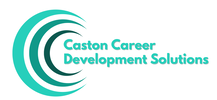 "What is your greatest weakness?" This is one of the most DREADED interview questions (well, at least to me it is). When does anyone ever want to intentionally tell someone about their greatest shortcomings are as an individual, or as a professional. Well, the important thing to note here is that your interviewer is not really trying to nit-pick and find out everything bad about you. Instead, what your interviewer is really trying to do is assess how you manage, or make efforts to overcome and improve your weakness. Check out this VERY informative article that is featured on Best-Job-Interview.com titled Interview Questions Weaknesses. They've got a great chart that lists out various weaknesses, how they can be perceived in the workplace, and how they can be positively managed.
0 Comments
 Depending on how long you’ve been in the thick of your job search, you may have reached what I call your “pseudo job search breaking point.” We’ve all been there. This period comes about after you have applied for every job in your field (at least that’s what it feels like), and now you just simply want a job –ANY job! At this point, you’re just ready to get back into the swing of having a job, just like everyone else seems to have and bring home a steady paycheck! Low and behold, you come across a job posting that seems PERFECT for you, and you are gung-ho about applying. Before you start filling out that online application, take a moment to consider if this seeming “dream job” is your version of utopia, or in reality, a potential nightmare. Here are 4 things to consider before applying to any job: 1. Is the position description interesting to you? Yes, you may have completed the type of work listed as job duties in your previous roles, but it doesn’t mean you liked it and want to continue doing it in the future. If the job description doesn’t really interest you, don’t apply. You don’t want to end up in a new position you hate – that would be annoying! 2. Is the position located in an ideal location? Let’s say you review the job description and it peaks your interest. But, you notice that the position is based 50+ miles away from your home… that SUCKS! If you hate traffic, ever-rising gas prices, and you actually have a life outside of work, you may want to reconsider applying for this position. For some, the commute may be worth it (hey – I’d travel far and wide to work for a company like Google). If the position is too far for your liking, consider finding out if the company has offices closer in proximity, or telecommuting options (that would be wonderful). But, consider the location of all positions… you just may find that the location is a deal breaker.  3. Does the pay meet your financial needs? Sure, many job postings don’t include salary information these days. But, if you’re willing to do a little digging, you may be able to at least come up with a ball park salary range for the position before applying. Check out Glassdoor or Salary.com. Glassdoor allows current and previous employees to post reviews about companies, and sometimes they post their salaries for various positions. Salary.com provides users with the average salary of various job titles (they even use geographic location to determine averages). It’s a great tool to use when providing salary expectations to employers (I personally hate that question – your response can potentially take you out of the running for a position). After you conduct your salary research you find that the potential pay isn’t going to help you get back on your feet financially, you may want to reconsider applying. 4. Does the company culture match up with your work style?
Not many people consider how a company’s work environment will affect them as employees. So, take the time to do more research about the company’s beliefs, work habits, culture, etc. Check out their website and see what they have to say. Again, this is another great opportunity to use Glassdoor to find out what other employees have to say about the company and their experiences as employees. Some companies, such as Salesforce, Whole Foods Market, and The Container Store, have it clearly stated on their website in the Careers section. If it sounds appealing to you – go for it! But if something stands out as a red flag, keep that in mind when deciding whether or not you’re going to apply. CNN Money has published a pretty extensive list about the 100 Best Companies to Work – your dream job may be with one of those companies! The Ladders has a great list of questions that you can use during an interview to find out more about a company’s culture – check it out and see how you can incorporate them into your next interview. Dream jobs… do they exist? Sure they do, you just have to look for them! What other reasons do you think are debatable when thinking about applying for a job? So, you've read about writing the “perfect resume." You think you've incorporated every tip, suggestion, etc. and still have find a way to successfully convey all of your professional and educational experiences. You've even managed to keep your resume under 2 pages. It's your best resume EVER! Or so you think... The reality is that while you've finally completed your most thorough resume to date, it doesn't tell employers anything about WHAT you've successfully accomplished, and HOW you've accomplished it. So how do you go back to the drawing board and really make sure you sell yourself as the best candidate with your resume? 1. Include your accomplishments. Everyone (hopefully) has successfully reached at least one milestone in their place of employment. Everyone also has had to solve at least one problem in the workplace. Well now's the time for you to shine by describing how you did that, and share how it benefited your employer. Try using the PAR technique (P-problem, A-action, R-result) to write the perfect statement that describes that accomplishment. 2. Quantify your accomplishment(s). No, that doesn't mean tally up all of the accomplishments you've ever had. Instead, take some time to really think about significant outputs to your employer that was a direct result of your work. Maybe you developed a new review process that resulted in your department decreasing spending by $10k throughout the year. That's a great and quantifiable accomplishment. Hey, what company doesn't want to figure out ways to spend less? Spending less = more profit! 3. Showcase your accomplishments. Now that you've written several awesome PAR statements, and you've quantified your accomplishments, make sure they stand out in your resume. Don't bury those impressive accomplishments at the bottom of your bullet points - employers may never see them! Instead, take a page from the “functional resume handbook" and work on grouping your major accomplishments with supporting task statements that relates back to certain skills sets. Ex. Revitalized declining strategic partnerships with corporate sponsors by facilitating quarterly site visits to develop long-term communication plans that increased programing approvals by 40% ·Collaborated with agency directors to schedule in-person site visits and develop meeting agendas ·Analyzed complaints from corporate sponsors to identify gaps in service and to develop collaborative solutions What other ways can you successfully convey to a potential employer what you are actually capable of doing? Leave a comment and help out your “job search colleagues!"
We all know about Careerbuilder.com and Monster.com, but what else is out there to help a job seeker in search of employment? Check out some of these great sites to ramp up your job search efforts! FYI - thanks to advances in our technology, job search websites oftentimes uses software that scans individual resumés for important keywords that are relevant to the job description. Be mindful, and use keywords strategically and wisely.
Oftentimes when looking for employment, many job seekers take that plunge to create the perfect (or not so perfect) resume to begin their job search. You may find yourself struggling to remember all of your duties from a job you held four years ago, searching through old e-mails to pull from previous job descriptions, or just pulling all of your old resumes and simply combining it into one main resume. GUESS WHAT???? That will definitely keep you unemployed.
To be successful and effective in your job search, job seekers should make sure to draft more than one resume that is specifically catered to the position that you are applying for. If you find that you have several career goals/passions, do not pigeonhole yourself by placing such a vast amount of information into one resume. It is a great idea to have resumes that have specific career goals, such as resume catered to Human Resources, another resume catered to the nonprofit sector, etc. Gone are the days of just sending the exact same resume to every company with job openings. According to Kim Isaacs, Monster Resume Expert, "If you have more than one career goal, the best strategy is to develop multiple resumes that target your different objectives". Stay clear of the "one-size-fits-all" resume! If you would like more information regarding creating more than one resume, click the link below: Article Source: http://career-advice.monster.com/resumes-cover-letters/resume-writing-tips/more-than-one-career-goal/article.aspx There are LOTS of resources to help you with finding a job. Some people, such as Joleen Hart, recruiter with Recruiter & Sourcing Strategist at Accenture, have even created a blog just to make the job search process easier. Check out Joleen's blog, along with many others that are linked to her website for updated job leads to help you along in your job search.
Joleen's Blog – Recruiter at Accenture |
Archives
February 2017
Categories
All
|
Create a free website with Weebly
